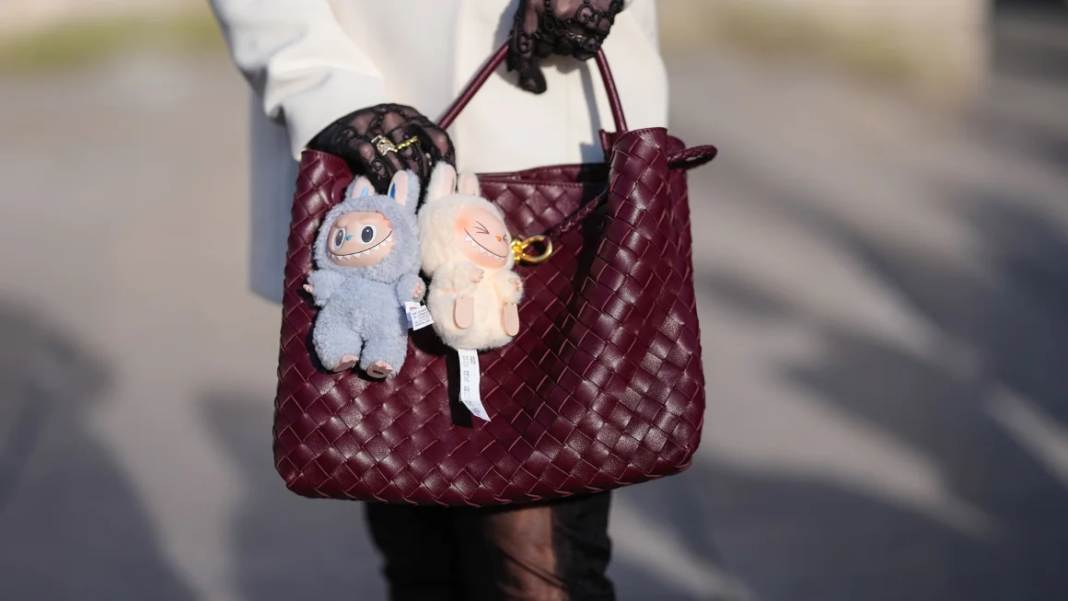Labubu, a palm-sized Nordic elf with wide eyes, a sharp-toothed grin, and an impish demeanor, has become an unlikely status symbol. Originating from “The Monsters” storybooks in 2015, these toys are now distributed by China’s Pop Mart and sold in mystery “blind boxes,” where buyers don’t know which figure they’ll receive.
Medical student Naomi Lin, a dedicated collector from Nebraska, proudly displays her Labubu charms on high-end accessories like Chanel handbags. Dressed in tiny costumes—from Halloween jack-o-lanterns to chic tweed outfits—these plushies combine a soft, miniature form with a uniquely eerie appeal.
Pop Mart’s Meteoric Success
Pop Mart, the toy company behind Labubu, has seen explosive growth both in China and internationally. In 2024, Labubu generated $410 million of Pop Mart’s $1.8 billion revenue. Its US sales surged nearly 900%, with brick-and-mortar stores in cities like Los Angeles and Paris drawing massive crowds.
Citigroup analysts predict continued growth, fueled by Pop Mart’s diverse lineup, including figurines like Baby Molly and Dimoo. The toys’ affordability, ranging from $20 to $40, offers a slice of luxury without the high price tag.
Celebrity Endorsements and Cultural Appeal
Labubu’s popularity owes much to celebrity endorsements. K-pop star Lisa and pop icon Rihanna are among its fans, elevating the toy to a must-have accessory. The trend also taps into a long-standing Western fascination with Asian “kawaii” culture, reminiscent of Hello Kitty’s success.
Anne Cheng, a professor at Princeton University, notes that Labubu’s rise highlights a complex relationship between US consumers and Asian products. Despite past anti-Asian sentiment, the allure of accessible, adorable collectibles remains strong.
Challenges in a Changing Market
The ongoing US-China trade war has prompted concerns over tariffs on Chinese goods. Pop Mart has absorbed costs to keep prices stable, though recent releases have seen slight increases. Analysts suggest the company may diversify its supply chain or expand into new markets to sustain growth.
The Joy of Blind Boxes and Collectibles
Labubu enthusiasts compare the thrill of opening blind boxes to the excitement of gambling. This sense of anticipation has driven countless collectible crazes, from Beanie Babies to McDonald’s Happy Meal toys.
China’s government has even regulated mystery box sales to prevent addiction, requiring parental consent for children under 18. Yet, the appeal of these “silly little guys” remains undiminished, offering fans a whimsical escape in challenging times.

Knock-Offs and Alternatives
For those unable to snag an official Labubu, knock-offs—dubbed “Lafufus”—have emerged, offering cheaper but lower-quality alternatives. Meanwhile, discount stores like Miniso and Daiso provide their own versions of blind box toys for budget-conscious shoppers.
A Growing Fanbase
Labubu’s fanbase continues to grow, spanning continents and generations. Whether attached to luxury handbags or crocheted with handmade outfits, these quirky plushies have become a global phenomenon. As fans like Lin say, “It’s more than a toy—it’s a lifestyle.”





